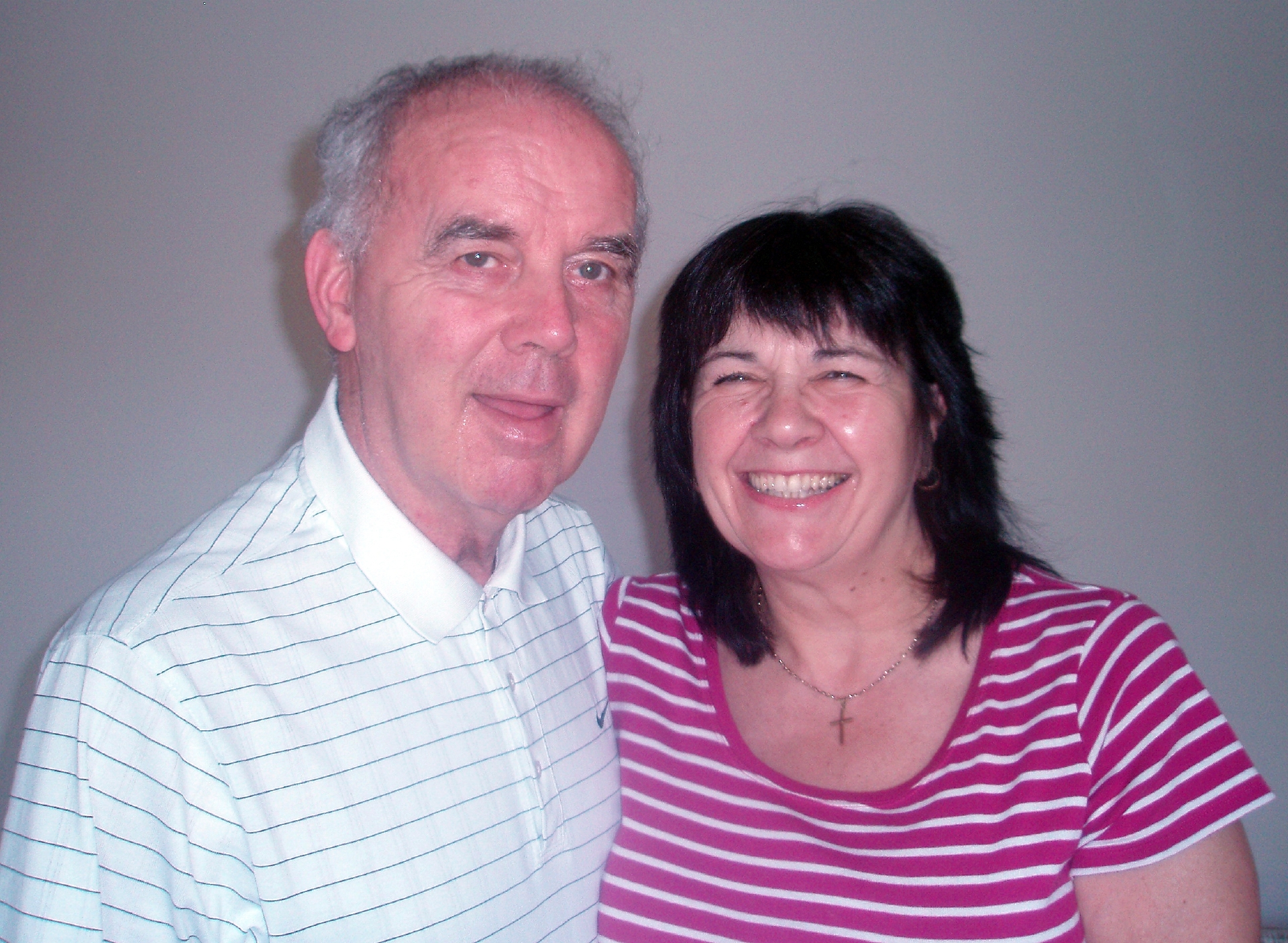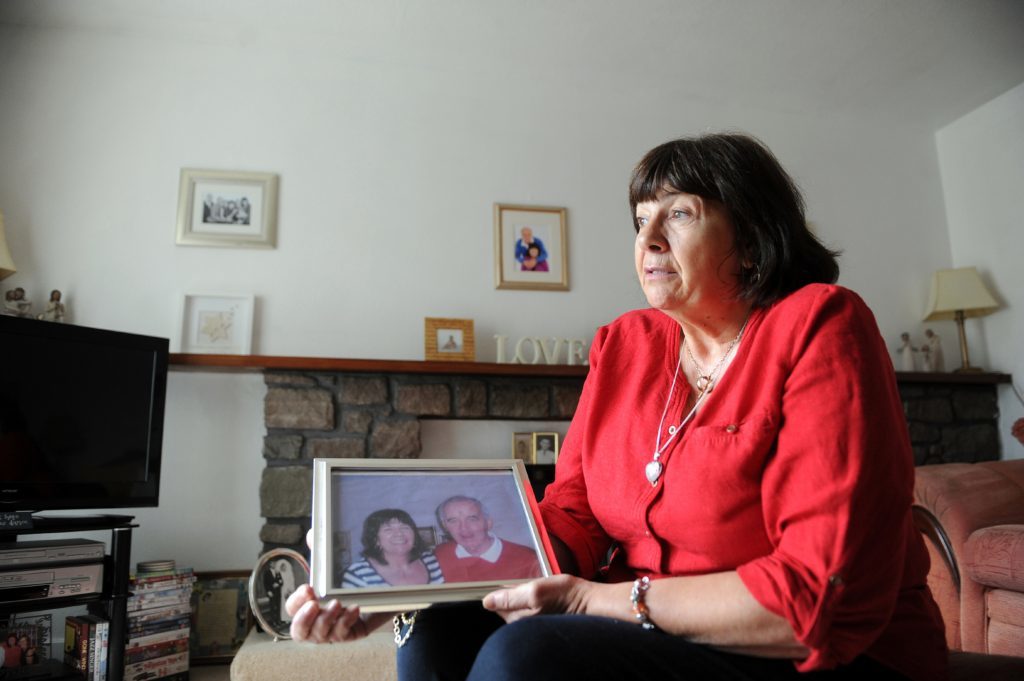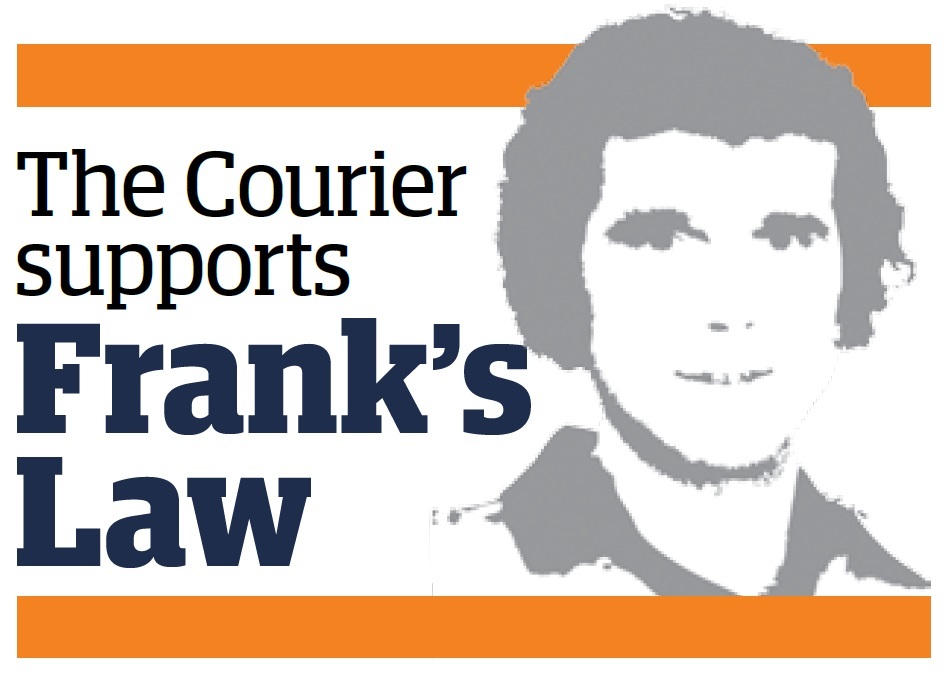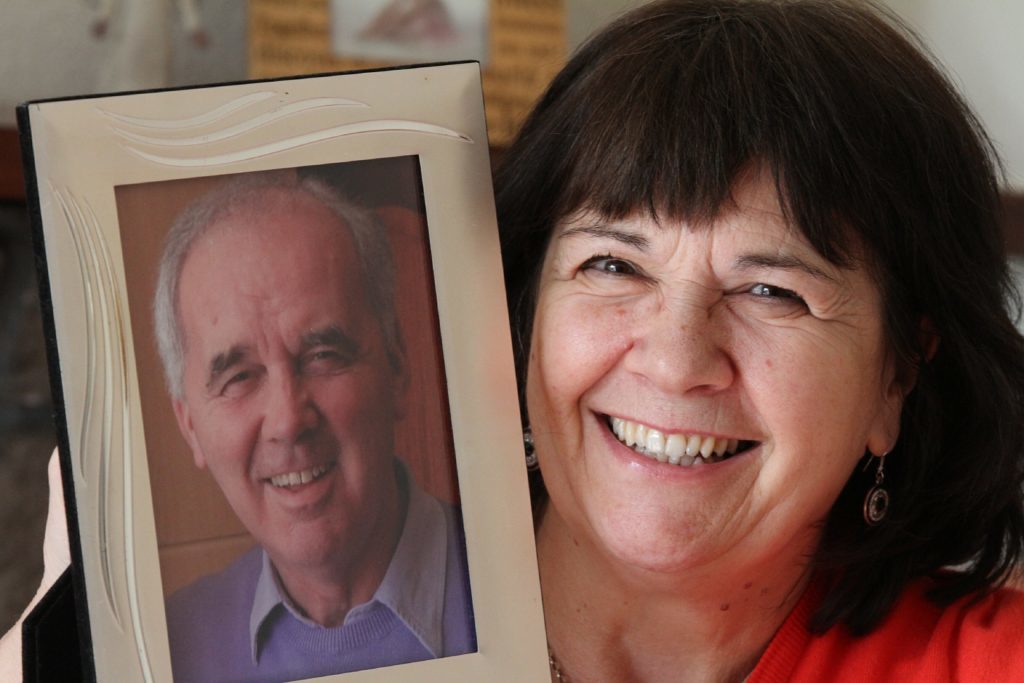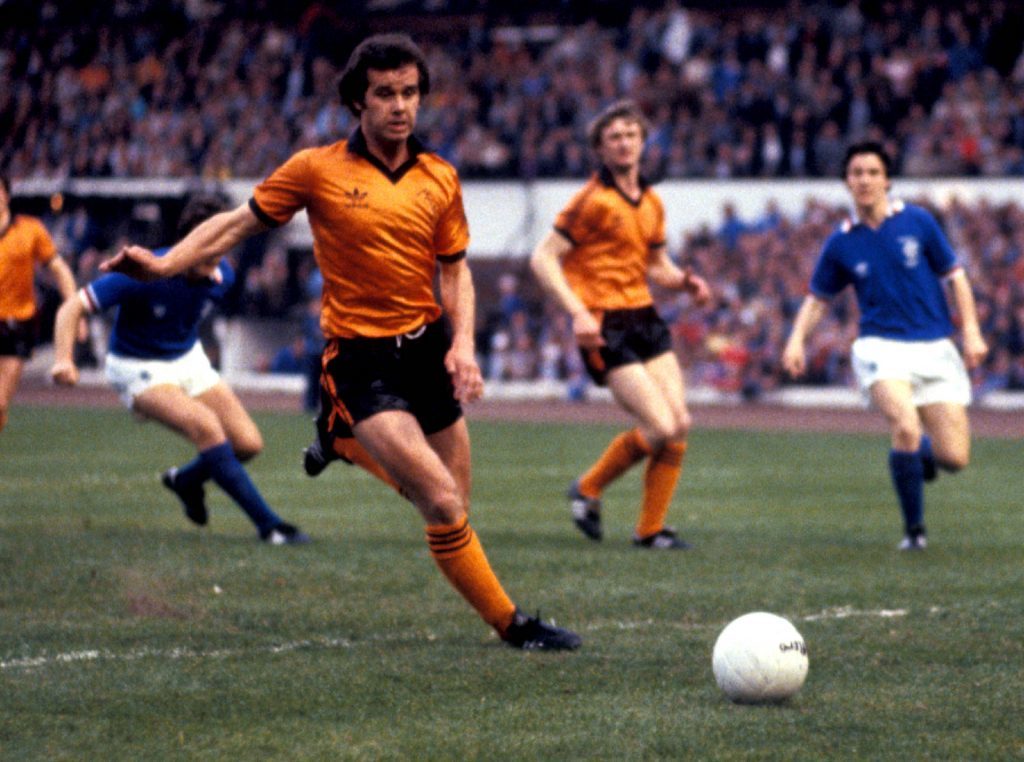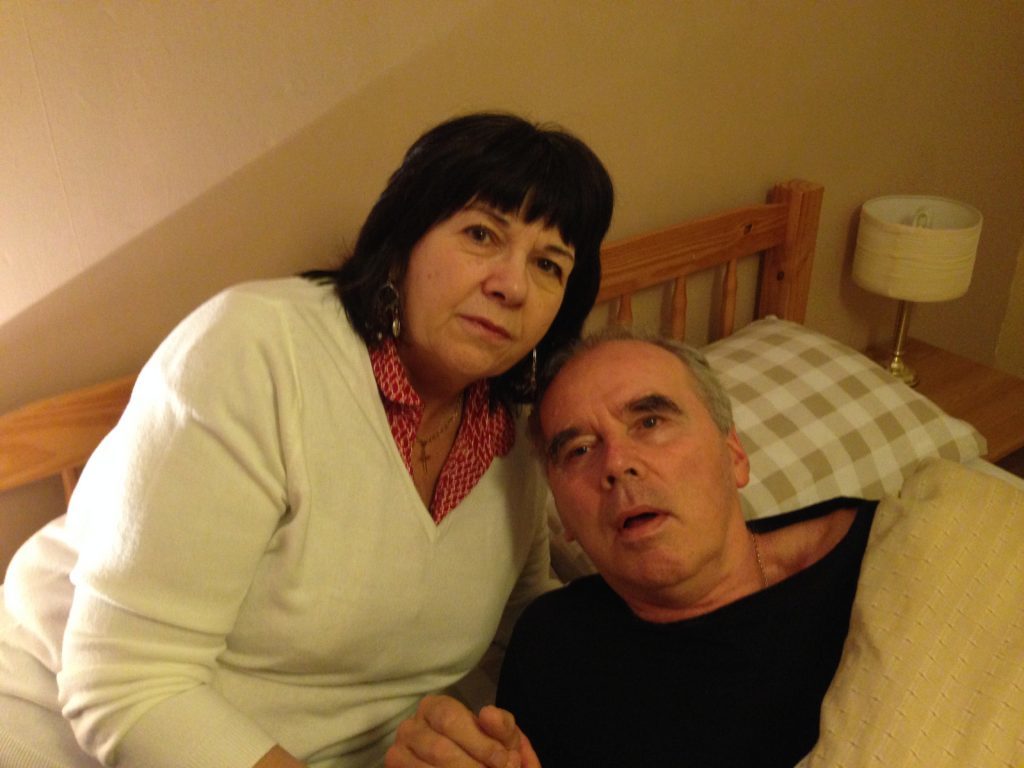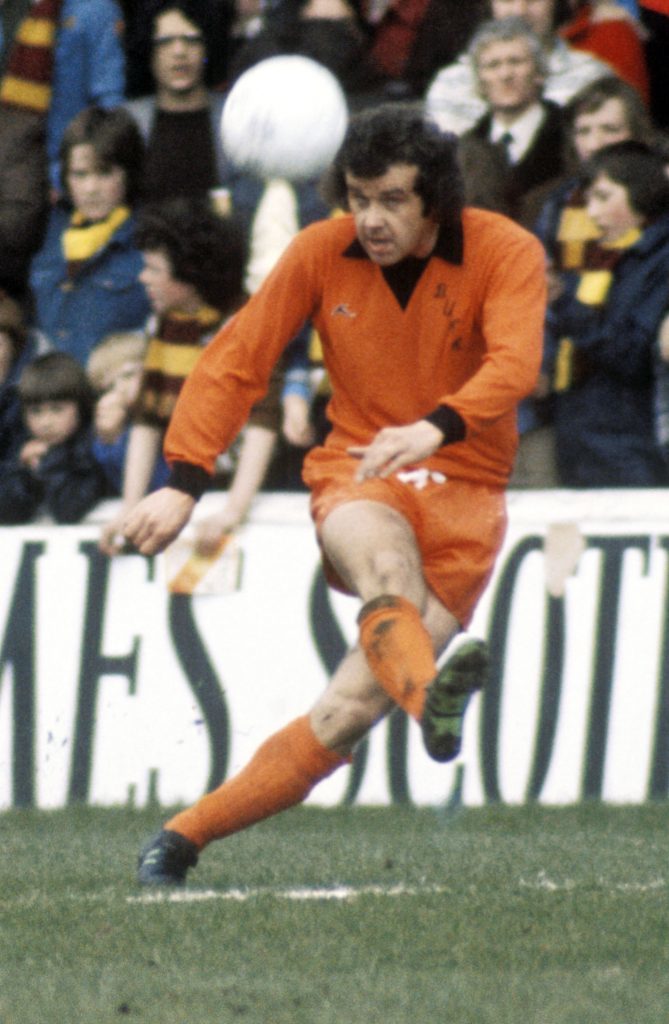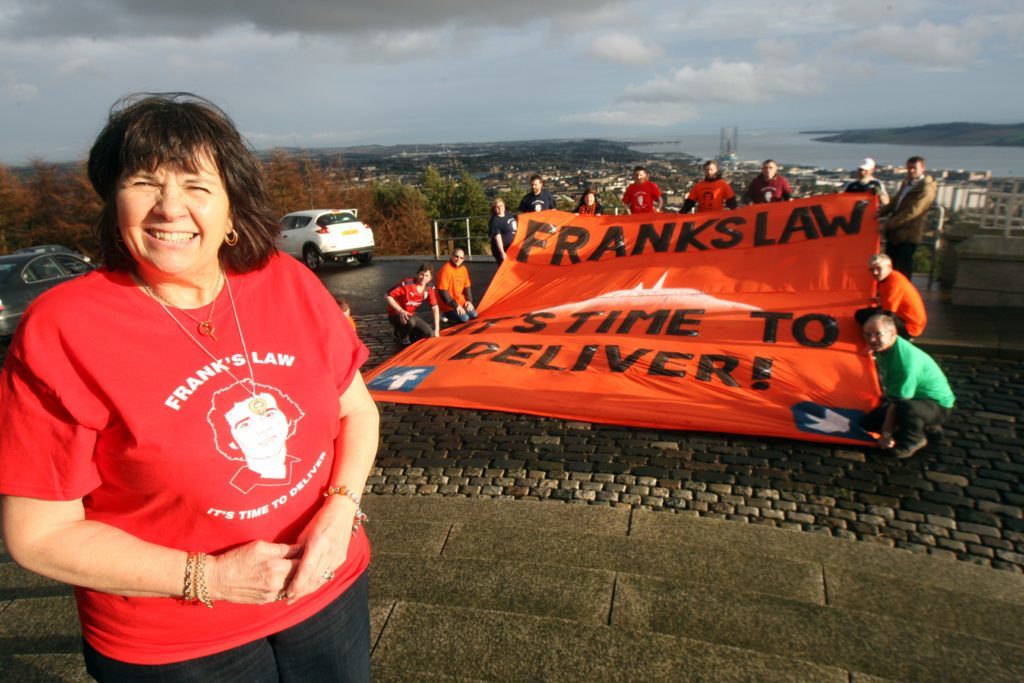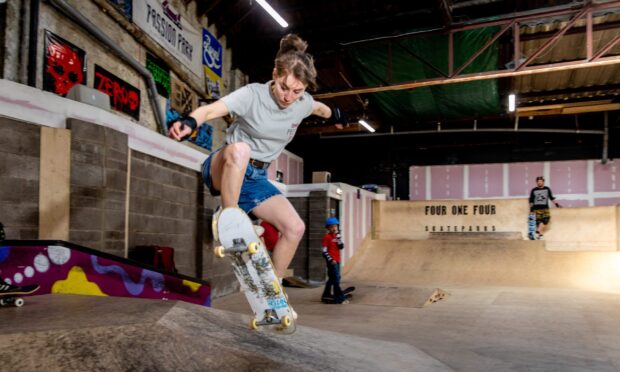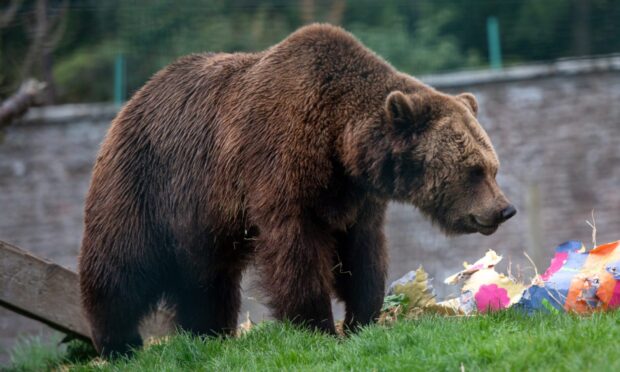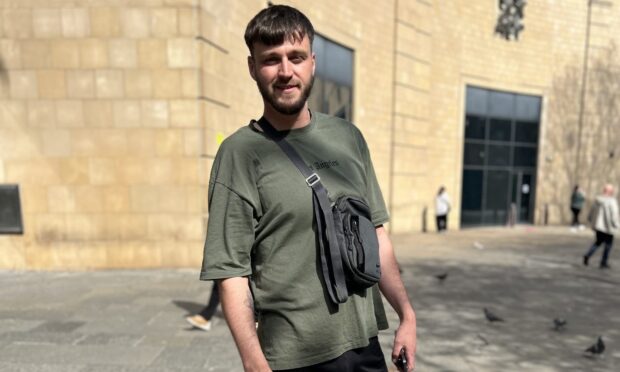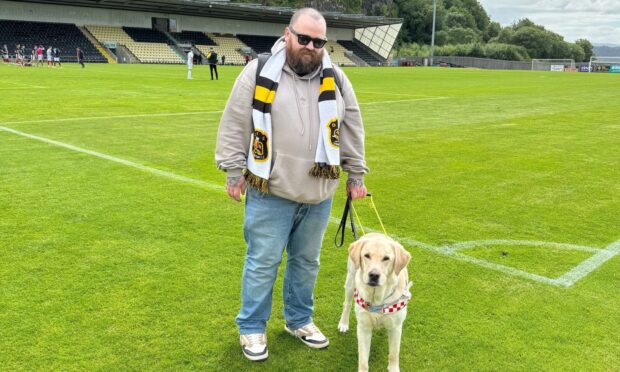As Dundee United legend Frank Kopel’s widow Amanda fights for free care to be extended to under 65s with dementia, she opens up to Gayle Ritchie about losing her husband.
In the early stages of his illness, iconic footballer Frank Kopel would smile at video footage of his greatest goal.
As his dementia worsened, he would gaze impassively at the television screen, asking his wife Amanda, “Who scored that?”
Not only had Frank forgotten how skilled a footballer he was, he had forgotten who he was.
Frank, who was in Manchester United’s travelling squad when they won the 1968 European Cup and was then part of Dundee United’s great team of the 1970s and 1980s, was just 59 when he was told that he had dementia in 2009.
Because he was under 65, he was unable to qualify for free personal care.
As a result, the Kopel family struggled on for six years, paying vast amounts of money – around £300 a week – to ensure Frank got the care he needed at home.
He reached the qualifying age for free services 19 days before his death in April 2014.
Since Frank’s diagnosis, Amanda, 66, has campaigned tirelessly for Frank’s Law – a law which would extend free care to under 65s with dementia.
At her home in Kirriemuir, she recalls the moment her husband received his diagnosis.
“It was the end of our world as we knew it. We wondered whether to go public, but Frankie turned to me and said ‘Amanda – tell them. It’ll be too late for me but it could help other people’. I feel now that I’m finishing a job Frankie started.”
Amanda won’t stop calling for fairness and equality in provision just because the love of her life has gone.
She’s lobbied Parliament and engaged with politicians of all the major parties to raise awareness and seek change, and the campaign has garnered nationwide attention from MSPs, celebrities and sporting figures alike. But it has yet to be passed into law.
Of the 85,807 dementia sufferers in Scotland, 3,201 are under 65 and not entitled to free personal care.
“I’m doing this for Frankie and for all under-65s in Scotland whose lives are damaged by unequal provision,” Amanda tells me.
“Dementia is a horrible disease whether you’re 45 or 95. Age is just a number so why are people being discriminated against? If Frank’s Law is passed, financial hardship for under 65s with dementia will ease and their quality of life will improve.
“The campaign keeps me going; it keeps me focused. I refuse point blank to give up – to let both Frankie and all those other people down.”
When you meet Amanda, she comes across as a bright, warm, sunny individual with a sense of humour.
I discovered this a few weeks ago when I dressed up as Forfar Athletic’s football mascot, Baxter the Bridie, and was presented with a Frank’s Law T-shirt by Amanda ahead of a match.
But behind the smiling and joking is a side Amanda protects from the public glare.
“People see me and think I’m coping because I’m laughing, I’m talking and I’m getting out, but life is very lonely without Frankie,” she admits.
“I could walk into a room with 10,000 people in it and still be alone. Frankie and I were soulmates. I miss him. But I know he’s pulling the strings from heaven saying ‘keep on going, hen’.
Amanda and Frank grew up in the same Falkirk street as children. When they first met, Amanda was eight, and Frank was 10. He had a football under his arm and asked if she wanted to go to the park.
“We tootled down there and Frankie kicked a ball while I went on the swing. Even then I knew he was somebody special. We shared our first kiss at a party when I was 12 and our first date was to watch a football match – Stirling Albion vs Alloa.”
The couple married in 1969, as Frank’s football career was going from strength to strength and Amanda was working for a bank.
“People tease me that I’m one of the original WAGS,” she laughs. “Somewhere inside me there’s a Victoria Beckham waiting to get out!
“Frankie always said he was lucky to do a job he loves. We had a brilliant life and then this disease came to our door. It destroyed Frankie’s body and mind but it never destroyed the love we had for each other.
“Sometimes I find it difficult to remember the good times because I still see what that horrible disease did to him. Dementia has been described as the ‘long goodbye’ – you watch someone slowly being robbed of their life, of their dignity.”
When Amanda noticed Frank confusing simple issues, such as totting up figures in his job as a sales rep, she put it down to stress at work.
But as the illness took hold, she became Frank’s full-time carer.
She recalls a day when he turned to her and asked: “Where do you live?”
“I thought he was joking. I told him where I lived and he said: ‘You do not. ‘Amanda and I stay there. Do you know Amanda?’ I was in pieces but I couldn’t cry in front of him.”
A few weeks later, Amanda dug out their wedding album and asked Frank who was in the pictures. “He knew it was me, but couldn’t work out I was sitting beside him. I explained I was just an older, fatter version. He burst into tears and said: ‘What’s happening to me, Amanda?’”
Things got progressively worse and it got to the stage where Amanda felt she was looking after an “adult baby”.
“Frankie was frustrated – he knew what he was trying to say but he couldn’t get the words out. He became doubly incontinent, couldn’t feed himself, his mobility went and he lost sight in his left eye.”
But there were moments of lucidity, right up until the end. One memory that will stay with Amanda forever is of the day they danced together, a few weeks before his death.
“I was feeding Frankie in the kitchen when the Elvis song, The Wonder of You, came on the radio. He stood up and started to sing and dance with me. He held me until it stopped and said: ‘Amanda, you’re beautiful. I will always love you’. Then he went back into his other world.”
Then there was the time Frank failed to recognise himself scoring that incredible goal against Anderlecht in Belgium in 1979 which saw Dundee United through to the next round of the Uefa Cup.
Watching a rerun, he asked Amanda: ‘Who scored that goal?’. “He didn’t even know he was a footballer,” she says.
Because the Kopels were paying for Frank’s personal care, they were strapped for cash and forced to sell one of his League Cup winners’ medals with Dundee United and his pride and joy – a blazer from when he was a player at Manchester United under Sir Matt Busby. Touchingly, the collector who bought the blazer returned it after hearing of Frank’s illness.
The family also faced the distress of feeling unable to get the correct diagnosis of Frank’s condition until having his medical history re-examined by neuropathologist Dr Willie Stewart.
“He had been misdiagnosed and it became clear his disease was caused by football and recurrent head trauma,” says Amanda.
“I’ve got photos of Frankie heading the ball and it’s worrying. I wonder what damage was done back then.”
Frank passed away in Amanda’s arms at their home after picking up a chest infection.
Clutching a locket which holds a photo of Frank, Amanda recalls: “It was just the three of us – me, Frankie and our son Scott. Frankie chose his moment. He said: ‘I’m tired, Amanda, so tired’ and lay down on the pillow. That was the last thing he said.
“There was a lot of laughter in our marriage – Frankie and I shared the same sense of humour so it wasn’t all about tears. I was blessed to have him in my life for so many years. “When the time comes, I know he’ll be waiting for me.”
In June, Amanda received the degree of Doctor of Laws from Dundee University in recognition of her campaign for Frank’s Law.
She’s heavily involved in raising awareness of Chronic Traumatic Encephalopathy (CTE) – a form of younger-onset dementia associated with repeated sport-related head trauma, and is working with a Glasgow-based research team headed by Dr Stewart to further studies into the links between CTE and brain injuries.
Meanwhile, her campaign has enjoyed several high-profile boosts, with Andy Murray posing with a Frank’s Law T-shirt at Rafael Nadal’s local club in Mallorca in July, and the Spaniard himself showed similar support in May.
Celebrity backing has also come from Game of Thrones actor Ron Donachie, Deacon Blue singer Ricky Ross and TV queen Lorraine Kelly.
Ultimately, Amanda’s story is one of hope, tenacity and perseverance in pursuit of eventual success. She won’t give up until the law is changed.
